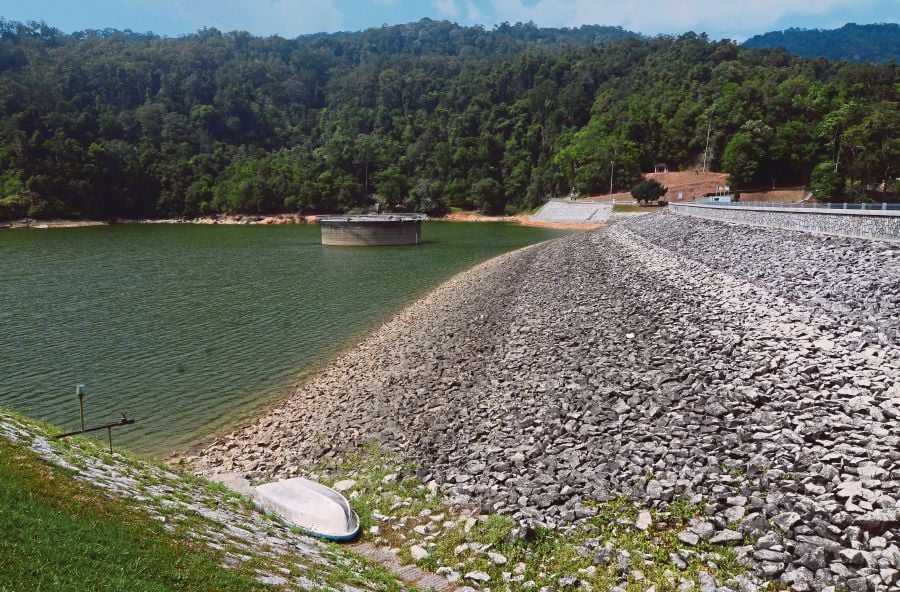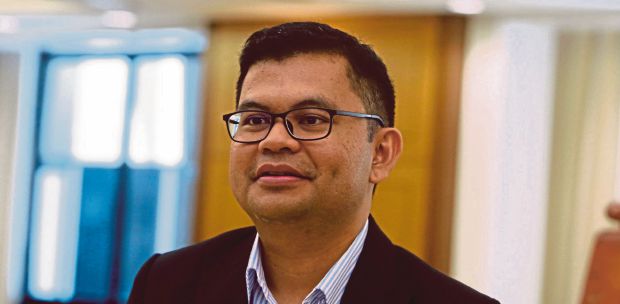OVER the last few days, my friends in Kuala Lumpur had been throwing awful questions about the "water dispute" between Kedah and Penang, possibly piqued by a recent statement by Muhammad Sanusi Md Nor (Kedah's 14th menteri besar) that he was going to divert the course of a river in Kedah so that it no longer flowed into Penang.
Sanusi had apparently said: "I can ask the villagers to put sandbags to dam the river at Pinang Tunggal… We will redirect Sungai Muda to somewhere else... Where will you (Penang) get your water from then?"
My friends asked, "Is he for real? Was he joking?" I could sense the sarcasm and incredulity behind the questions.
The war of words between Penang and Kedah arose after Perbadanan Bekalan Air Pulau Pinang Sdn Bhd (PBAPP) called on the Kedah government not to mine rare earth minerals in Ulu Muda to preserve Sungai Muda. Sanusi earlier announced that Kedah has RM42 billion worth of rare earth minerals, which it plans to extract.
Penang Chief Minister Chow Kon Yeow said he was willing to hold discussions with the Kedah government over the annual payment of RM50 million. He supports Kedah's quest to obtain compensation from the federal government because raw water matters are under the purview of the federal government.
Many years ago, Tan Sri Azizan Abdul Razak, who was the then Kedah menteri besar, and I were invited to attend meetings at the State Financial Officer's office to deliberate on this same quest. I was told that the likelihood of getting a favourable response from Putrajaya was slim.
My friends had asked me if there was any formal water agreement between Kedah and Penang that required the latter to pay an annual compensation to the former. I did a little research and discovered the following.
On Oct 25, 1982, Penang and Kedah signed a memorandum of understanding (MoU) to realign the states' border to the middle of Sungai Muda. Penang surrendered 11.2ha of land to Kedah after the construction of the Rantau Panjang Barrage.
On July 4, 1985, Penang and Kedah gazetted their respective state laws, which stated that the boundary between the two states was at the "centre-line" of Sungai Muda. According to public international law, the middle of a river (which is considered the deepest part) serving as the common boundary is called the "thalweg".
Kedah accepted the land mentioned above, and in return provided the "water guarantee" to facilitate an Asian Development Bank loan arranged by the federal government for the Sungai Muda Water Scheme.
In official maps, the middle of Sungai Muda is depicted as the boundary between Penang and Kedah. Sungai Muda flows naturally into the sea. Johor charges Melaka for pumping raw water to Melaka, but Kedah is not pumping raw water to Penang.
In his press statement on Aug 12, 2017, Datuk Jaseni Maidinsa, who is PBAPP chief executive officer, stated that Kedah should seek compensation from the federal government because Ulu Muda serves as a water catchment for three Northern Corridor Economic Region (NCER) states — Perlis, Kedah and Penang. He said Ulu Muda should be gazetted as an NCER water catchment, deserving federal legislation and funding.
Insisting that Penang should pay compensation for drawing water from Sungai Muda, Sanusi said the Kedah and Penang (Alteration of Boundary) Act 1985 does not entitle Penang to an eternal supply of free water. The act is meant only to "guarantee water supply from Ulu Muda, which is located in Kedah".
Last Thursday, Sanusi reiterated that although there was no "black and white" agreement on the tariff (water charges) in 1973 when the Sungai Muda Water Scheme was officially opened by the then prime minister Tun Abdul Razak Hussein, Penang must pay it after the Kedah State Water Resources Board was established when the Water Services Industry Act 2006 came into force.
Looking back, I reckon Sanusi was joking about diverting the river. It was wishful thinking of Sanusi when he spoke of mining the rare earth minerals, but he was serious in wanting to get compensation from Penang. All his predecessors in recent times had made the same demand against Penang soon after they assumed office.
I think they are expected to make such a demand, traditionally. Pursuing it, however, seems a different matter.
The writer, a former federal counsel at the Attorney-General's Chambers, is deputy chairman of the Kuala Lumpur Foundation to Criminalise War






